Amnesty International today launched a new briefing on activists and human rights defenders jailed across Myanmar, including students, a journalist, satirical performers, an environmental activist, a labour rights activist and trade union members, and a Buddhist monk.
Here are some of their portraits and personal stories:
The poet challenging Myanmar’s Constitution
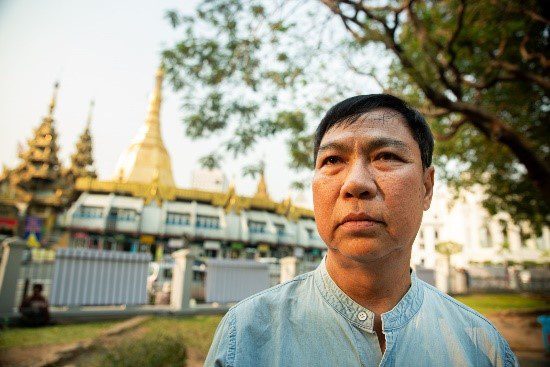
Saw Wai is facing two years in prison for reciting a poem at a peaceful rally calling for amendments to Myanmar’s 2008 Constitution, which entrenches the military’s power in the country. Saw Wai started writing poetry when he was 14 years old. In 2008, he was sentenced to two years in prison for penning “February 14” – a coded critique of the military disguised as a love poem in which he called General Than Shwe (the then-head of the military government) power crazy.
Two other activists – Kyee Myint, a lawyer, Nay Myo Zin, a former military captain, are also facing the same charges for giving speeches at the rally. Nay Myo Zin is already serving one year in prison and facing additional charges for speaking at other peaceful rallies.
I only have my poetry as my weapon. I will fight with it… I will not surrender.
Poet Saw Wai

The traditional satire performers from the Peacock Generation
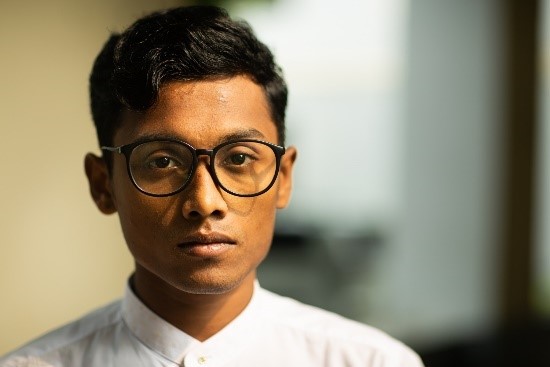
Nyein Chan Soe is a final year math student and a member of the “Peacock Generation”, a troupe who perform a traditional type of satirical poetry called Thangyat, and whose members have been targeted for arrest and prosecution by the Myanmar authorities.
He and six other members were charged for a series of peaceful satirical performances criticizing the military. Some of the performances were also streamed online. He was acquitted after spending six months and a day in detention. His detention meant he lost his part time job, which he relied on to support his family and education. He also failed his final year of university because he couldn’t undertake an assignment from prison.
The other six members have been sentenced to between two and three years in prison. They are all currently imprisoned in Insein prison, Yangon.
We perform Thangyat to critique what is wrong in our society… The laws used
Nyein Chan Soe
against us are unjust… As artists, we will continue to fight injustice. We will
continue to perform and exercise our right to freedom of expression.
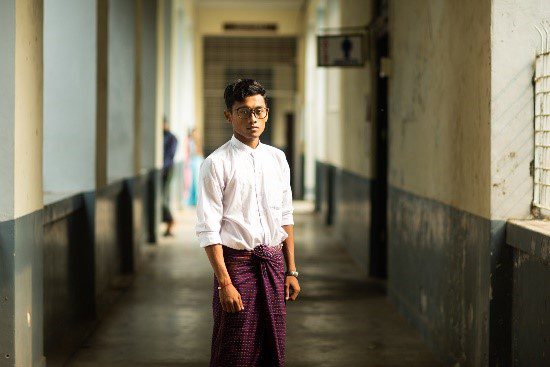
Credit: Mary Tran / Amnesty International
Supporters of the Peacock Generation

Nan Lin is one of five people facing charges after they attended a court hearing to show support for members of the Peacock Generation in May 2019. Nan Lin’s girlfriend, Su Yadanar Myint, is one of the group. When the detainee arrived at the court, they accused police of using force to handcuff them, which led to a scuffle between police and Peacock Generation supporters. One officer was reportedly injured. Nan Lin and four others were subsequently charged in connection with the incident, and are each facing five years in prison.
The government should take action against the military and stop them from suing ordinary people.
Nan Lin
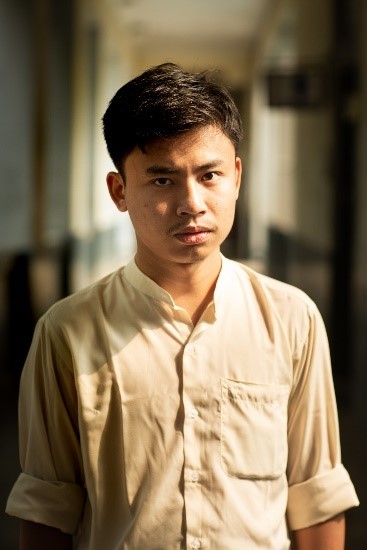
Credit: Mary Tran / Amnesty International
The supporters of a former child soldier
Lay Lay was imprisoned for protesting outside a court against unjust charges against former child solider Aung Ko Htwe. Both have been released from prison after completing their prison sentences. However, Lay Lay’s daughter Khin Cho Naing and two other activists, are currently serving between 12 to 18 months’ imprisonment at Yangon’s Insein prison for their involvement in the peaceful protest.
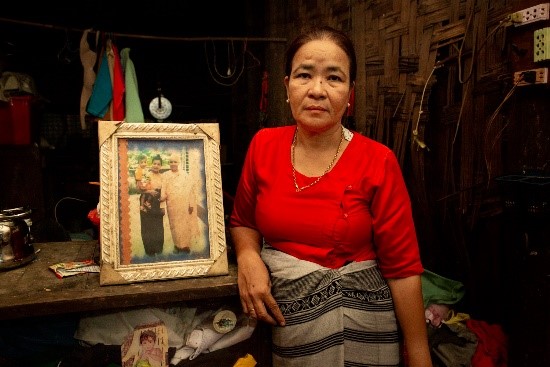
I supported Aung Ko Htwe because he was forcibly recruited [into the military] and spent his youth as a child solider. [When he spoke out about his experience] he was charged and lost his rights… I couldn’t stand it anymore. The military can sue ordinary people for numerous reasons, but people don’t have the same opportunity to hold the military to account.
Lay Lay
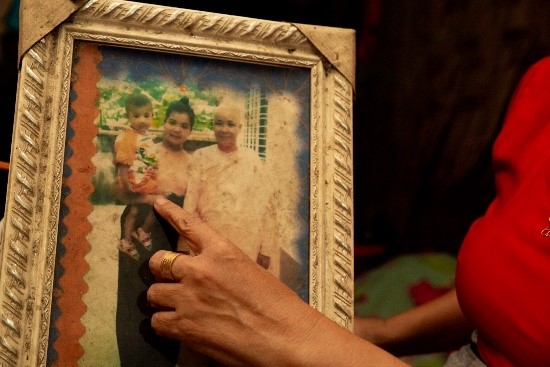
The Rakhine activist
On 20 March 2020 Than Hla aka Min Bar Chay, an ethnic Rakhine development worker, was found guilty of protesting without permission after he participated in a demonstration calling for justice and an end to security force violations in Rakhine State, western Myanmar. He was sentenced to 15 days in prison; the same day the authorities announced that a second charge of protesting without permission had been dropped.
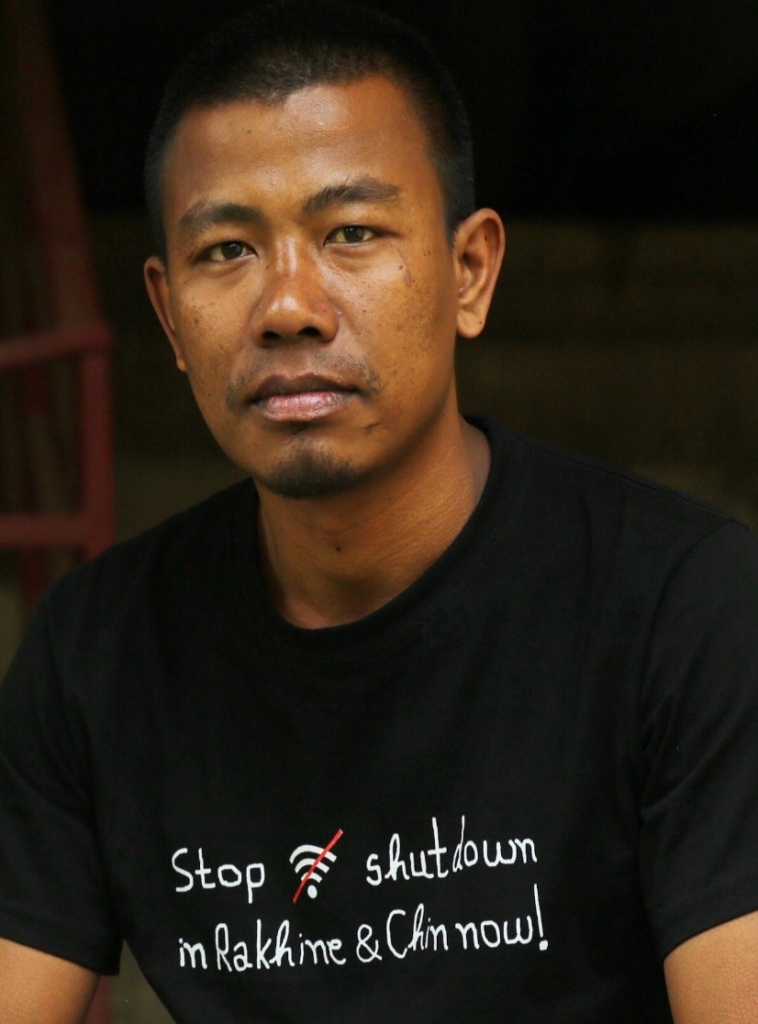
The elected NLD government, they went through a lot to become what they are right now… but they are not resolving the problems. It’s really sad…What I see is the situation is becoming worse [than] it was under the military government.
Than Hla
The environmental activist from Karen State

Saw Tha Phoe is an ethnic Karen environmental activist. Police are investigating him after he had supported a community in Kayin State, southeastern Myanmar, in raising its concerns about the environmental and social impacts of a nearby cement factory. He has been charged with “incitement” and is currently in hiding, fearful of arrest. He faces up to two years in prison if found guilty of the charge.
Now I cannot work freely… people see me as a criminal. We can face charges in court, but we don’t have a guarantee that the law will protect us.
[People here] want development, but it has to be sustainable development. The communities that I work with will face more difficulties if the government doesn’t allow them to speak out and activists cannot help.
Saw Tha Poe
The peace activist from Kachin State
Seng Nu Pan and Paul Lu were found guilty of violating the Peaceful Procession and Peaceful Assembly Law after they organized an event to commemorate the eight-year anniversary of the resumption of armed conflict in Kachin and northern Shan States in a peaceful event held in June 2019. In September 2019, they were both sentenced to 15 days in prison, however when Paul Lu protested the verdict by handing the presiding judge a broken pair of scales, he was charged with contempt of court and jailed for a further three months.
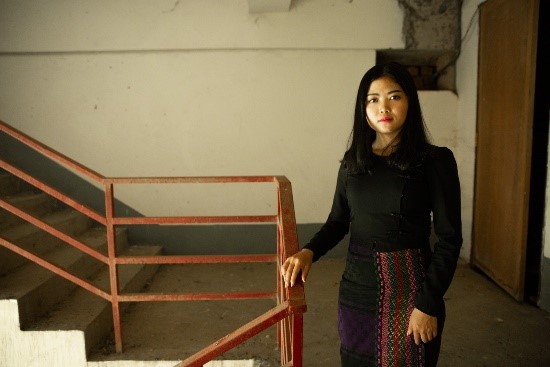
For each protest, we submit a permission request, including the estimated number of people and slogans. Sometimes police tell us to remove words referring to the military. But no matter how we try to comply with their requirements, one way or another protesters are charged under the Peaceful Assembly and Peaceful Procession Law.
Seng Nu Pan
The labour rights activist
Kha Kha, a labour rights activist, and seven factory workers have been charged in connection with a peaceful protest outside a garment factory in the Pathein Industrial Zone, in Ayeyarwaddy region, in September 2019. If found guilty and convicted they face up to three months in prison.
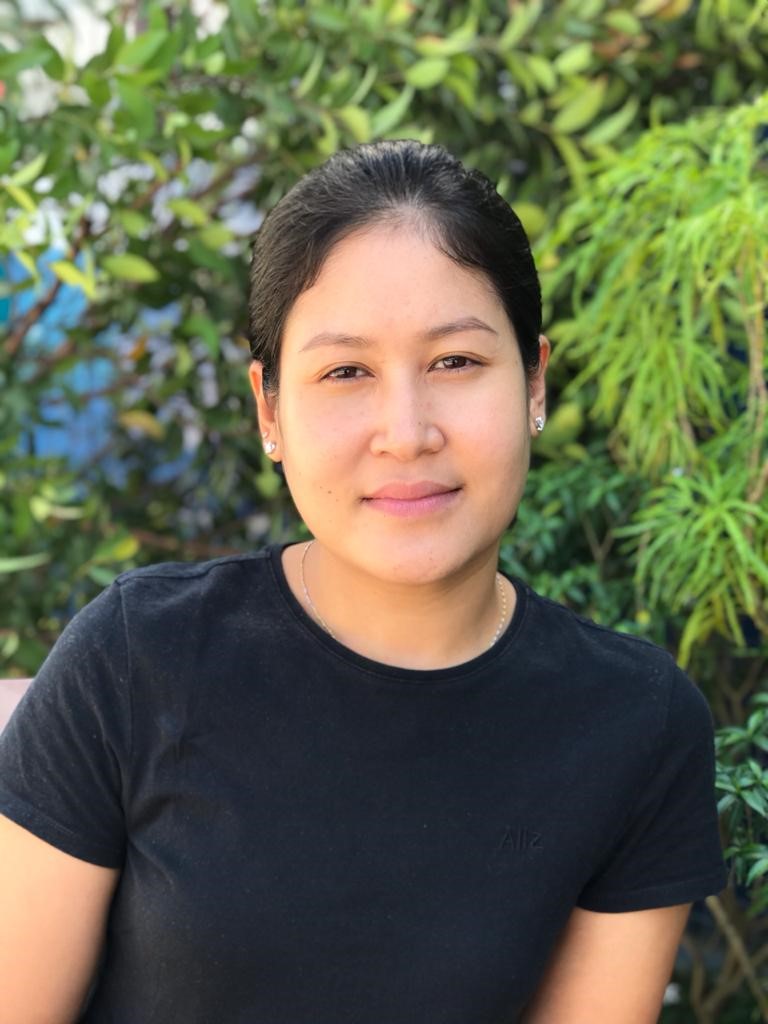
We have to improve the living conditions of workers [if we are] to improve the country’s economy… the government should work with civil society and labour activists, speak to them, listen to them… [This] oppression makes me work harder – if a person like me can be charged, workers who are poor and in difficult conditions must be treated even worse.
Kha Kha
The Karenni activist
Dee De and five other ethnic Karenni activists were sentenced to six months in prison in October 2019 after a court found them guilty of defaming the Kayah State Chief Minister. In March 2019 they had published a statement on social media in which they accused the Minister of being a traitor to the ethnic Karenni people after he allowed a controversial statute to be unveiled in the State capital earlier that year. Arrested and detained in June 2019, they were released in December 2019 owing to time already served.
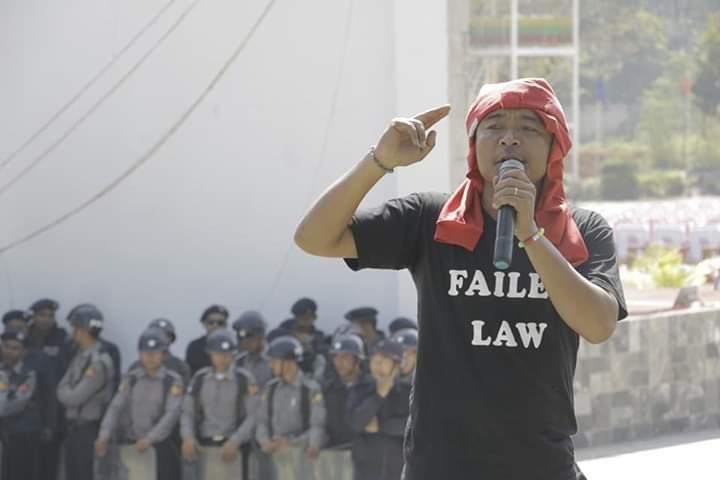
The government says we can protest and enjoy freedom of expression according to the law. But they are not just laws. They do not support us and uphold our human rights… They are used by those in power to oppress us.
Dee De
The Buddhist monk
Abbott U Arriyawuntha Biwuntha, also known as Myawaddy Min Gyi Sayadaw, a Buddhist monk living in Mandalay in central Myanmar, is facing criminal defamation charges after a military official complained about a media interview in which he criticized the military and accused a senior officer of donating a large sum of money to a hardline religious nationalist group. He is currently free on bail while his trial continues.
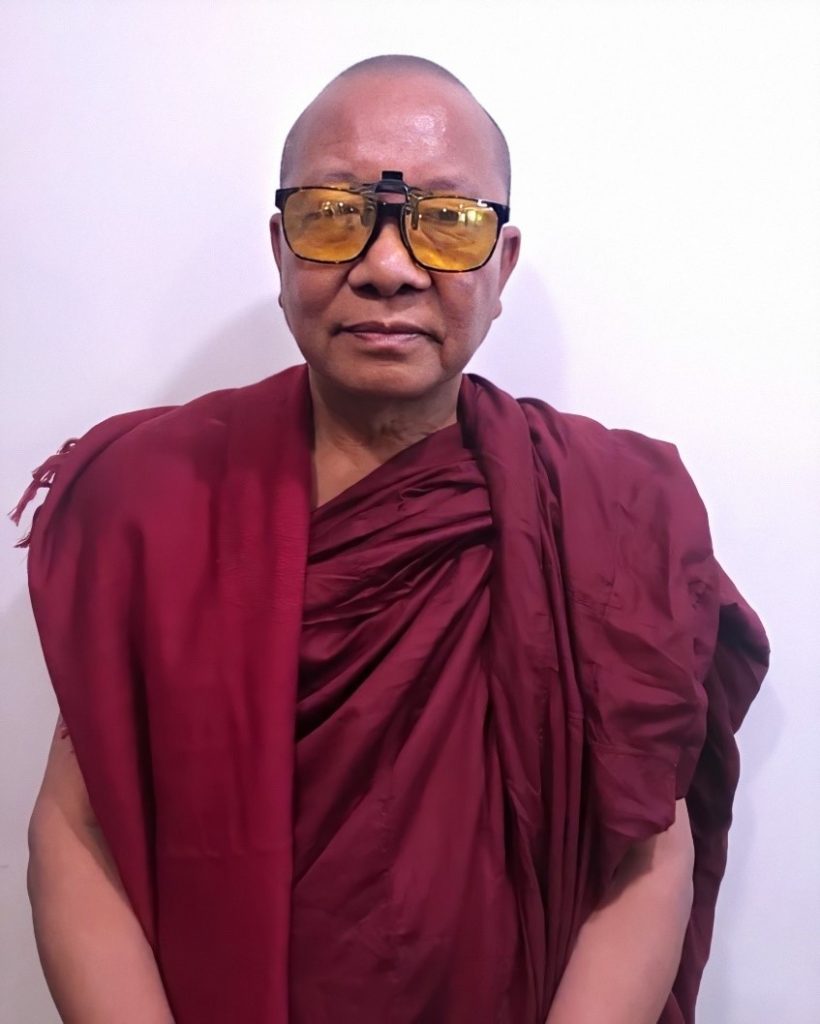
Religious leaders have a moral obligation to tell the truth and speak out against wrong doings… By restricting freedom of expression, by silencing those who dare to speak out and criticize, the government and others in positions of power and influence can do bad things without consequences.
Abbott U Arriyawuntha Biwuntha (also known as Myawaddy Min Gyi Sayadaw)
Find out more:

